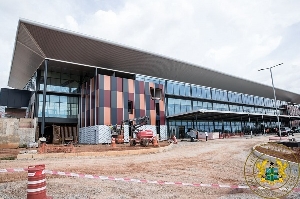Health News of Thursday, 1 May 2014
Source: GNA
Mental illness in women threatening national security
The Director of Rights and Rehabilitation Ghana, a non-governmental organization, has said the debilitating effects of mental illness in women posed a serious threat to national security, and called for immediate action to address it.
The Director, Mr. Kingsley Ofosu Armah, said most Ghanaian women serve as bread-winners yet a lot of them are going through severe depressions and anxieties, which are largely ignored by state parties.
Contributing to the 2nd women’s leadership and policy dialogue in Accra on Tuesday, Mr. Armah said state institutions are failing in their responsibilities to provide adequate safety net to protect women undergoing mental disorders.
The policy dialogue, organized by the Ark Foundation, Ghana, was on the theme: “women’s mental health and current social protection measures in Ghana; challenges and the way forward".
Mr. Armah expressed surprise that political party offices across the country looked even nicer, better resourced and staffed than the Department of Social Welfare Offices.
He called on government to immediately equip the Department of Social Welfare with adequate logistics and qualified staff to provide better counseling services to people, particularly, women suffering depressions, anxiety and other mental disorders.
Ms. Dinah Adiko, Technical Advisor, Ministry of Gender, Children and Social Protection said social work practice in Ghana did not recognize mental health.
She said child marriage, maternal health problems, HIV/AIDS, female genital mutilation and sexual abuse caused agony and trauma and subsequently lead to depression.
However, she said, many people are still ignorant about the causes of mental health and had to rationalize everything in the spiritual realm.
Ms. Adiko said it is the responsibility of the State to step in to prevent mental disorders and protect persons going through it.
She said there is, therefore, the need to provide sufficient economic empowerment schemes to help women access education, employment opportunities, business services, and information technology as well as credit markets.










